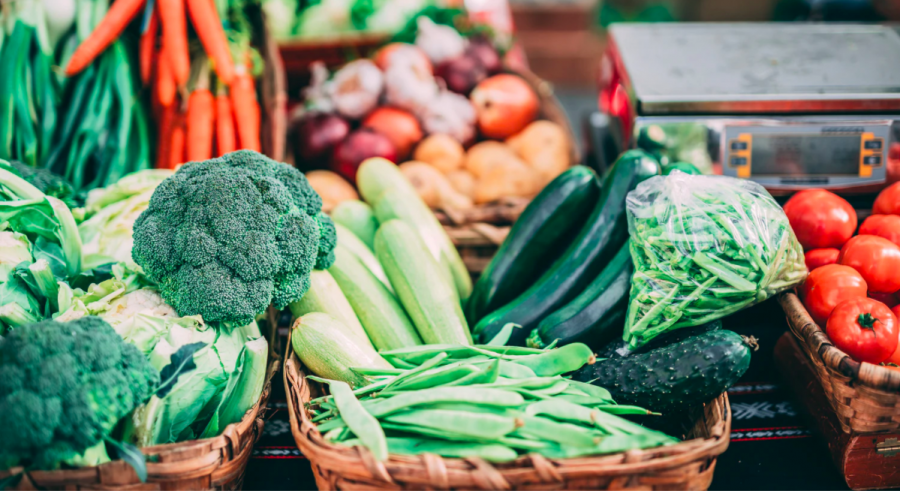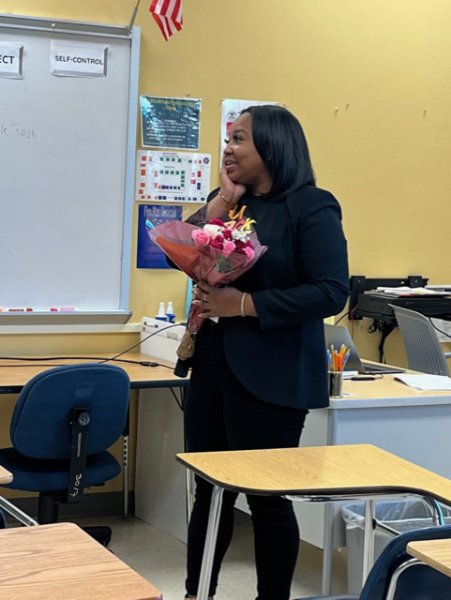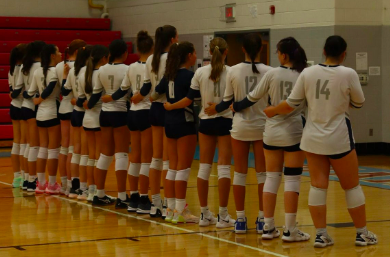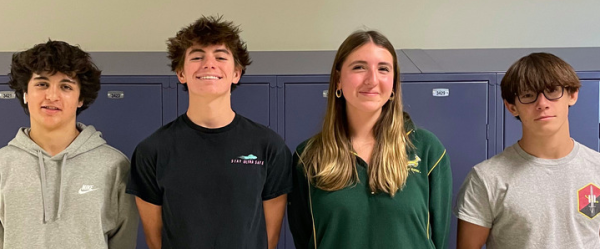Club plans school Victory Garden
In September of 2020, sophomore Teo Huson set out to create a club that would give back to the community; more specifically, a club that could help end the growing food shortage in America. Now, with the work of his fellow club members and school faculty, that dream is closer to a reality and the Victory Garden is set to be added to the school grounds this March.
The concept of a “Victory Garden” was first conceived at the beginning of World War II in 1942, popularized by the “Dig For Victory” campaign and launched as a way to combat hunger, boost the economy, empower the people and increase optimism in times of hardship. They began in America, but were even used in the United Kingdom and Australia because of how efficient they were.
Find more information about the history of the gardens here.
“During the time when Victory Gardens were most popular, which was during World War 2 and World War 1, there was a massive amount of food produced,” Huson, the club’s Communications Officer, said. “ Hopefully, during this war that we’re fighting against Coronavirus, we can get better communities and try to grow as much as possible.”
The struggle to feed everyone in America has been a problem for a long time. Even in Arlington County, there’s hunger. According to the Arlington Food Assistance Center (AFAC), 9.8 percent of residents in Arlington are at risk of food insecurity. Schools across the country have started working to combat it at a grand scale, creating Victory Gardens and even taking care of bee hives to help feed the community and bring back nature in urban environments.
“Our club is trying to get a school Victory Garden to Washington Liberty, and hopefully set an example for other high schools in our surrounding area,” Huson said.
Tuckahoe, Thomas Jefferson, Hoffman-Boston, and Wakefield have so far made incredible progress in the community.
“So far, in one year, the four school Victory Gardens have produced over 1,300 pounds of food,” Huson said. “That has a massive impact on these food assistance centers as fresh vegetables are hard to come by, and it really helps people.”
Now, with a pandemic overwhelming the country, community gardens are needed more than ever. But the Washington-Liberty Victory Garden (WLVG) Club is taking it one step at a time, the next goal being obtaining a plot of land to build and a grant to build the garden with.
“Hopefully, by the time we have land, we’ll have a grant,” Isabella Murashov, the club’s Technology Officer, said “[Then], we’ll be able to get supplies and actually start building the garden.”
Olivia Stuart, the club’s treasurer, estimated the price of building materials and tools for the garden to average out at about $300. She explained that the club has a very high chance of getting a grant, but if it doesn’t, they have considered possible fundraising in the future.
However, money wasn’t the end of the worries, concerns about the well being of the garden arose as well.
“The most difficult part is probably deterring pests and disease, or your plants lacking water or nutrients,” Huson said. “Without proper care and precaution, pests can cause real damage to a plot of vegetables, and disease can ruin your crop. Lack of water or nutrients can also impact a crop’s growth, which is a difficult part about caring for gardens.”
Plans to build a garden that combats pests and disease is one of the many future securities the club is already starting to put in place.
“The simplest layout, or the simplest form of the Victory Garden, is having a perimeter or a fence around it and as many raised beds as possible within the perimeter of the garden,” Huson said. “That’s the generic layout. It all depends on a certain location. So, once we do establish a specific location, we’ll probably make our blueprints public.”
Other than promoting the club through the school website and the Clubs and Societies Canvas page, the club has gone further to create their own accounts on different social media platforms, including Instagram, Discord, and in the future possibly Facebook, Twitter and their own website.
Social media makes it easier for clubs to gain members and create an easy way for new students looking to join the club to get links to online meetings. Another change the club made to be more organized and efficient was to assign each person their own role based on their unique skill set.
“We decided that we needed more organization, and we wrote out different roles that we needed, then each of us said what we were good at,” Murashov said. The club currently has six members, but they’re still looking for more members each day.
“Gardening isn’t easy, but it’s incredibly rewarding, and the work feels fun and relaxing,” Huson said. “I grow food myself,and I grew lots of food throughout the summer. I’ve learned that the more work you put into your plot of land, and the more you tend to your vegetables, the better your results will be when harvesting comes around in September.”
The club has an idea to boost school involvement, including creating opportunities for volunteer students to earn community service hours. This recruitment might help with the large amount of work Huson said the club currently partakes in, which ranges from 10 to 15 hours of work a week.
“We’re trying to coordinate with some master gardeners and volunteers throughout the community so that once we get this garden growing, [it won’t just be students in the club] working toward facilitating, organizing and making sure that the garden is producing vegetables as efficiently as possible, plus making sure that it’s tidy,” Huson said. “We don’t want the garden to become a sore eye after a few years. We want it to be a longstanding part of this community.”
The hope is that by the time the garden is built and starts producing produce, there will be no need for the social distanced gardening the club has been planning for in light of the COVID-19 pandemic. But for now, the Washington Liberty Victory Garden club treds forward to help those in need and lift the spirits of everyone else.
“Our long term goal is to create a long lasting club of students helping coordinate volunteers, master gardeners and students to keep this Victory Garden efficiently producing vegetables,” Huson said. “And, of course, hopefully making a long lasting contribution to our food assistance centers in Arlington, helping those in need with food insecurity, and most importantly, boosting morale during these times of hardship.”
















